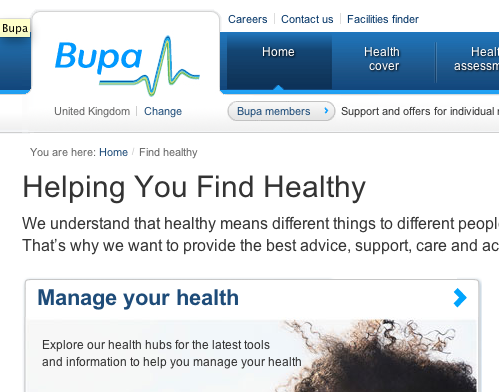Does clunky click?
What does Sky’s slogan,
Believe in better
actually mean? I’m not really sure, but to make sure I wasn’t being deliberately obtuse, I asked my Twitter feed what they thought. Here are some of the answers (not all serious, natch):
- Tim Rich (@66000mph) reflects both their desire to be seen as innovators (we’re NOT the BBC) and the way technology is changing TV. Vague though.
- Dan Adams (@danadamstweets) just a paraphrase of ‘expect more’ but with some alliteration thrown in for good measure?
- Zakaullah Khan (@balinor) Sounds campaignable, but incomplete… Believe in better programming, believe in better content, etc
- Rob Wright (@Copywrighting) It – sincerely – says to me is ‘we’re not great right now, but stick with us, ‘cos (trust us) we will get it together for you’
- Stella Eleftheriades (@stellamedia) I always want to say believe in batter #cakeonthebrain seriously tho gives idea of going extra mile, more personalised service?
- Alasdair Murray (@Alconcalcia) Got no idea what ‘Believe in better’ actually means. Who, if anyone, believes in worse? The coalition perhaps.
- Andrew Nattan (@Mr603) It means you have to close your eyes and believe really hard to think it’s worth paying for over Freeview.
- Lydia Nicholas (@LydNicholas): Externally: TV should be better, if you believe this, make an act of faith and pay for it. (so paying is a brave stand for quality). Internally- there is a more efficient, TV business & organisational model than those inspired by BBC.
- Kevin W (@CreativeCopyKC) Believe in Better? Sounds like they’re pitching improved quality (both HD picture and higher quality programming)
- Ash_Humby (@AshHumby) For me Believe In Better is Sky’s attempt to sum up the Sky experience, in a similar way to BBC iplayers Making The Unmissable Unmissable.
- Peter Baruffati (@peterbaruffati) What you are viewing may be bad, but don’t lose hope.
The range of answers confirms that, while it may or may not be effective, the slogan is certainly ambiguous. In my view, the meaning is unclear because the language is deliberately unfamiliar and clunky.
Finding clunky
A similar effect is achieved with Bupa’s current slogan:
Helping you find healthy
I didn’t ask for views on this one because I think the meaning is clearer, but it’s still been twisted slightly out of shape with unorthodox language. (In passing, note that Bupa are using the clichéd ‘we understand/that’s why’ ploy that I highlighted in this post – perhaps to redress the balance?)
Both this and the Sky slogan create a jarring effect by using adjectives as nouns, which is disorientating. We believe in fairies or democracy, but not ‘better’. We need help finding our car keys or a way forward, but not ‘healthy’.
‘Better’ and ‘healthy’ are positioned as nebulous metaphysical states that we can aspire to; the diffuse language creates (or tries to create) the impression that there’s something special or amazing about watching telly or buying health insurance.
And this is, of course, part of the seemingly endless trend for brands to be more soft and friendly, sucking up to customers and wheedling their way into their lives at every turn. Social media’s got a lot to answer for.
Awkwarder than yesterday
Another example is put forward by copywriter Kevin Mills, in his post Stumbling over copy. He cites an outdoor campaign by Fitness First featuring the line ‘Our members are fitter than yesterday’.
As Kevin notes, this is a very unfamiliar phrase. To me, it sounds like it might have been translated from French. Again, this leaves the reader slightly disconcerted and uncertain, just as they might be if a non-native English speaker came up and asked the way to the station of trains. The meaning is clear, but it’s been expressed strangely – which means the impression that stays with you is strangeness, rather than the benefit of being fitter.
Unspoken words
As they stand, these three phrases are classic cases of things that get written, but would never be spoken aloud:
- ‘I’m going to get a Sky dish because I believe in better.’
- ‘My BUPA doctor’s really helping me find healthy.’
- ‘I’ve started going to Fitness First, and now I’m fitter than yesterday.’
However, these brands aren’t going for a Ronseal-style vernacular vibe. Instead, they’re aiming for differentiation through language – using unusual construction to imply that they themselves are exceptional.
Does it work? Does the unusual slogan stick in the mind – and does that lead to a sale?
In his post, Kevin suggests that using an unexpected or unusual phrase could make an ad more memorable. I think much depends on whether it gets ‘filed’ in the zone of the reader’s mind you want it to – whether it goes in a mental category marked ‘curiosities’ rather than ‘things to buy’ or ‘things to find out more about’. My worry would be that an unusual construction would just be deleted from the reader’s consciousness because it didn’t fit the rhythm and tone of their internal monologue.
Do different
It would be easy enough to discover, with A/B testing, which slogan produced a stronger response. However, with the Sky and BUPA examples given above, I’m not sure that a desire to be understood, or even to drive sales, is centre stage. We’re in the realm of brand-building here, where the overall impression is more important than the immediate real-world result. (With Fitness First, there’s a strong suspicion that the effect is the result of carelessness rather than strategy, as Kevin notes. Of course, a campaign might still be good by accident.)
The Sky slogan, interestingly, was explicitly oriented towards internal marketing as well as external – generating an ethos and vibe within the organisation as well as outside it. It’s Sky’s own staff who are exhorted to ‘believe in better’ too.
However, I think there’s another important audience: other marketers. Whenever a campaign has a flavour of wilful differentiation, there’s always the suspicion that the client has got a bit bored of their own marketing, perhaps even embarrassed by it, and wants something out there they can really feel proud of. Something clever, edgy and modern. And what better way to signal your superior intelligence than with words that no-one’s ever spoken, or even thought before?
Tags: Believe in Better, Branding, BUPA, Helping You Find Healthy, Ronseal, Sky, slogans and taglines, Twitter

